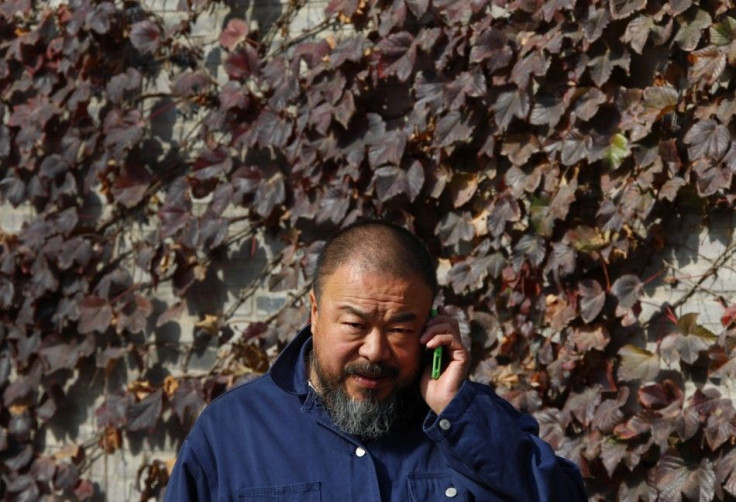Chinese Artist Weiwei’s Dilemma - Fight Communist Party or 'Tacitly' Admit Guilt?

Ai Weiwei, a Chinese artist who was detained in April this year for alleged tax evasion, is in a dilemma - if he should pay the tax amount or fight the charge against him and face detention again.
The renowned contemporary artist, who is openly critical of China's stance on democracy, had been in custody for 81 days until his release on bail in June. He was freed because of his good attitude in confessing his crimes as well as a chronic disease he suffers from, police said.
While the Chinese government asked Weiwei to pay 15 million yuan ($2.4 million), the artist sees it as an implication the government is imposing on him so that he admits to crime and his arrest is justified, or he is suppressed from speaking out.
Even if I got all the money and support from the public, police told me just yesterday: 'Well, it's good, you still have the intention to pay. If you pay, that means you admit the crime,' Weiwei told Reuters.
The artist said that he was still hesitant of paying the bill.
Weiwei's arrest at Beijing airport April 3 sparked pro-democracy protests worldwide, triggering an international uproar against China's Communist Party's control over political dissidents, for dozens of Human Rights activists and political critics were detained.
Ai Weiwei is a prominent figure in the art world who has always demanded democracy in China and condemned government corruption responsible for the deaths of thousands of schoolchildren in the 2008 Sichuan earthquake. Human rights activists say that allegation of tax evasion is just another way of the government to silence him.
© Copyright IBTimes 2025. All rights reserved.





















